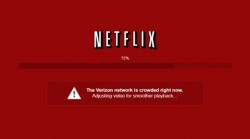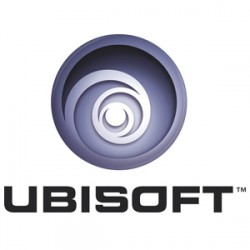Hello again. Hope you’ve had a pleasant week. I suppose I should mention the World Cup, but as I’m not a big fan of nationalistic, poorer-quality, FIFA mismanaged, money-spinning international football competitions (as opposed to club football), I don’t think I need to say too much about it. I’m sure you’ve been inundated with World Cup stuff from every media and online outlet, so you don’t need me to bang on about it as well.
As per usual (for the last few weeks, at least), let’s get through the stuff that wasn’t quite “newsy” enough. We start with MPAA suspending their lawsuit against Kim DotCom. While it sounds like good news for Mr DotCom et al, the MPAA are only suspending things pending the verdict in the criminal case against Megaupload and its operators, possibly awaiting a precedent to be set to make their jobs easier.
In Netflix news, the streaming firm has ended their war of words (or error messages) against ISP Verizon over poor streaming speeds. Netflix blamed Verizon for poor connection speeds via error messages shown to subscribers, while Verizon blames Netflix and the way they’ve chosen to route traffic for the speed problems. Lawyers got involved, and Netflix backed down. But the little spat has caught the attention of the FCC, which is launching its own investigation into the matter.
In Gaming news, Microsoft’s Xbox One missteps could cost the company up to $1 billion in losses, according to analysts. Just goes to show that messing with DRM and forcing things on consumers can be very dangerous and costly. Microsoft and Nintendo’s woes of course benefits Sony, which has helped the company sell more consoles than Nintendo for the first time in 8 years. 8 years ago was when the original Wii was released, which then went on to become a big hit. The PS4 may not reach the same highs as the Wii (being not as much of a “casual gaming” console as the Wii), but it certainly looks to be the dominant force in this current generation of consoles (which includes the Xbox One and Wii U).
With these out of the way, let’s get started with the “real” news.
![]()
Is Apple about to launch a copyright smack-down on apps that allow you to download music from streaming sites like YouTube and SoundCloud? That’s the theory according to MacRumors, and it may all be part of a big clean up of the App Store in time for the launch of iOS 8, later this year.
Other apps targeted are those that produce excessive notifications or annoyingly posts to social media, in order for self promotion. In other words, it’s about crushing Candy Crush. Another type of app in the firing line are those that provide in-game rewards for looking at ads and other slightly dishonest practices.
Those more cynical will point to the fact that Apple now actively promotes their own music listening apps, like iTunes Radio, when users search for “music download” on the App Store. Isn’t this the kind of thing that got Google in trouble? I’m not so sure these latest changes is evidence of this kind of slightly anti-competitive behavior, but it always struck me as a huge conflict of interest when a company is competing with its own customers in the same marketplace (that this company owns and operates). Whether it’s Google competing with other websites in the search results, or Apple’s stuff competing with other apps on the App Store.
Speaking of competition, Steam may be getting a new PC competitor in the form of GOG Galaxy. From GOG, the game publisher known for proudly carrying the DRM-free banner, GOG Galaxy will keep to the company’s DRM-free philosophies by producing a Steam-like platform, minus the DRM restrictions.
This means that the platform itself is entirely optional, unlike Steam, and that no online activation of authentication is required. Offline play, is of course, supported without restrictions. In exchange for opting for GOG Galaxy, gamers will have access to Steam like features, including automatic game updates, achievements, and online social features.
![]()
You know it’s bad for the Wii U when Ubisoft, one of the biggest backers of Nintendo’s console, is withholding releasing a fully completed game for the console because there’s just not enough people that own it.
While it seems a bit counter intuitive to spend all that money making a game and then not release it, Ubisoft says the cost of marketing a new game is an additional cost that cannot be justified right now due to the Wii U’s small install base.
But if things don’t improve, the unnamed game and several other titles in development may never see the light of day on the Wii U, and instead, may be ported to other platforms.
The problem is that without games, the Wii U will find it very difficult to take off. But without the Wii U being in enough people’s homes, third party developers like Ubisoft will find it very hard to justify the economics of it all. It’s the classic chicken or the egg situation (egg is the answer, by the way).
——
I think that’s it. See you again next week.




